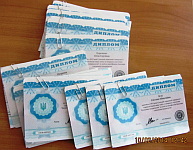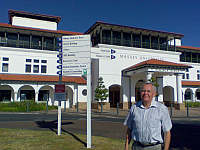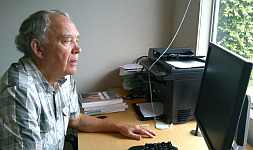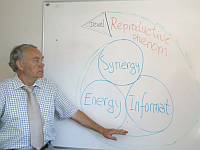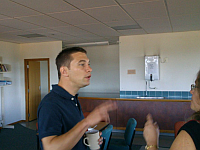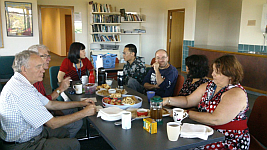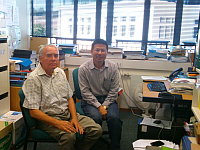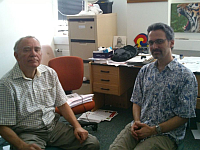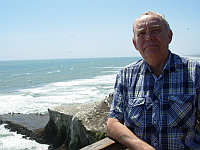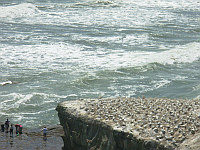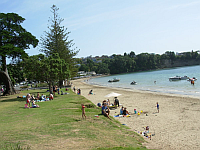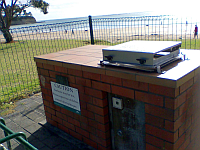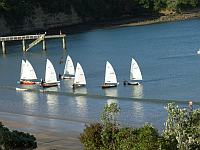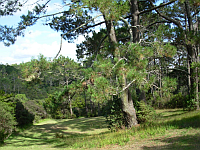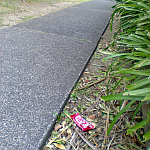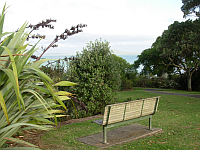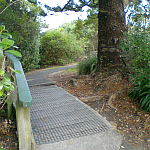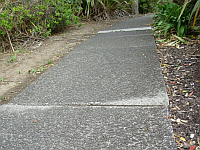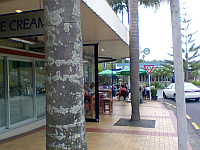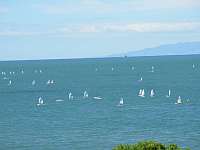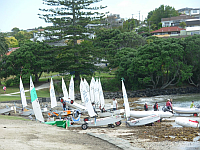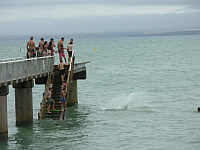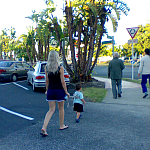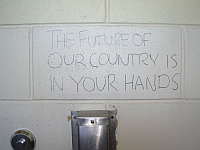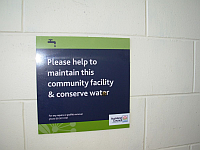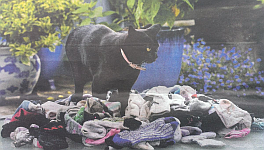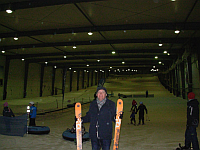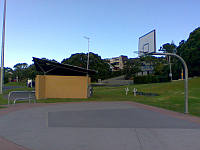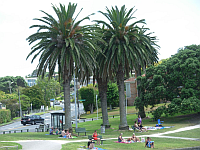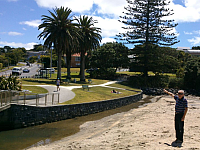| New Zealand Digest |
|
Recently prof. L.G. Melnyk, Head of Department of Economics and Business Administration (Sumy State University) and Director of the Institute for Development Economics (MONU and NASU) returned from New Zealand, where in January-February, he held a monthly scientific-teaching internship at the Massey University, Oakland. During the internship he collected additional materials for the international textbook “Economics and Business”, prepared: a chapter for the textbook “Economics of Development”, a manuscript draft of the book “Managing the development of economic systems: trialectic approach”, a scientific article. Prof. L.G. Melnyk lectured for graduate students. He also delivered a paper at the scientific workshop “Economics of Sustainable Development”, had a number of working meetings with university researchers. The report on a trialectic approach to the study of the processes of systems development based on three natural origins: 1) material and energy, 2) information, 3) synergetic provoked a considerable interest. The first moves, the second – directs, the third – unites and creates. On the Scientific Workshop at the Massey University
A Round Table Meeting with Scientists and Teachers Prof. L.G Melnyk also held a number of meetings with university researchers, in particular: with Dr. G. Chang (who explores the problem of standards formation in business), with Dr. B. Moyle (who explores the economic problems of sustainable development, including such an exotic sphere for Ukraine, as maintenance of crocodile farms in Australia), Dr. K. Galloway (who explores the economic aspects of communications formation).
Prof. L. Melnyk could study the practical aspects of implementing the ideas of sustainable development in concrete places of New Zealand. In the Bird Natural Reserve New Zealand seems to be called a country of victorious socialism: free parking everywhere, all the beaches are free. There are more than a thousand of them (only comfortable, where free toilets with water, wash basin and toilet paper). It is reasonable to remember our beaches in Yalta – without any conveniences, but with a one-time entry fee of 100 hryvnias(!). Browns Bay Beach with Public Barbecues Facilities However, we can say in another way: New Zealand is a country conquering sustainable development, where people have learned to carefully fit into nature, and nature coexists comfortably with the man. The share of electricity produced from renewable energy sources is closer to 80% with the complete ban of nuclear energy (including bans on nuclear-powered ships). New Zealand Landscapes New Zealand is a country with a population of 4 million on an area equal to the area of the UK. It looks almost as one carefully maintained house where everyone feels his dweller. So, a caring host carefully and gently settles his house and yard, carefully considering every detail: where to put the bench, where to lay footpath with children’s playground. Sterile cleanliness in parks and forests, the perfect quality of roads and sidewalks, where you can walk barefoot, that many people do.
Can one still see the bare levels between concrete slabs, for someone in the dark or careless, accidentally tripped over?
Sidewalk in Mayrangi District. Oakland Everything is very economical, humane and beautiful. Once upon a time (more than 120 years ago), our compatriot N.N. Neplyuev formulated the principle of people’s life-style: “cheap, healthy, elegant simplicity.” It is about the current New Zealand. New Zealanders are alien to the spirit of material gain and competitiveness for wealth. They are not ascetics, but learned to be satisfied with little for their maximum personal development and a happy life.
The level of self-organization of kiwis (NZ residents call themselves so) astonoshes. Young people (boys and girls) jumping off the pier into the water. It is possible to jump only during high tide, otherwise you can break. Young divers must decide anew each moment the time when they can start or stop to jump: “only-that was possible, and a moment later ir is already dangerous” or “one cannot a second ago, and now – go on”.
Pompous phrases and appeals to patriotism are not in honor in New Zealand. Everybody loves the land with the nature on which they live. Seemingly all among the older generation remember a phrase from a song by Vladimir Vysotsky genius: “… In the Parisian public toilet I saw the inscription in Russian.” In New Zealand the author met only one inscription in public toilets. And it was in English (near the cistern): “The future of your country is in your hands”. Inscription in a Public Toilet Sometimes it may seem that you are on another planet. Near the road there is a single table with fruits and vegetables on it (apples, strawberries, tomatoes) and the inscription: “honesty box.” There is a box where one must drop money. At a gas station one can see the inscription: “We kindly request not to forget to pay, after you set up the machine” (Ah-ah-ah! Does anyone forget!? We have no such posters – probably our drivers are more honest). But the biggest gimmick, apparently, municipal officials should be recognized. They manage to maintain such an order at fairly modest budgets. Is that the same: every last penny – in landscaping? No “kickbacks” or drifts, i.e. ordinary standards of the post-Soviet space and the Customs Union. Apparently, ruthless kiwi people shift all “dirty work” on animals (where are the defenders of bioethics?). To somehow support the balance between good and evil, poor animals have to plunge into the grave. “Puketo” bird is stealing tomatoes. And recently a cat was caught “just red handed” – on stealing from beach goers their socks (one of the national newspapers honestly wrote about it), placing photos of a four paws “criminal”. Cat “Thief” Caught Red-Handed February 6 New Zealanders celebrated their national holiday. Prof. L.G. Melnyk decided to nationally celebrate it – on skis.
More than half a century ago, a 26-year-old M. Lermontov’s poem “Three Palms” is actually formulated a prerequisite for sustainable development and showed a model of the environmental crisis. In the scorching desert there is a blooming oasis. Three palm trees protect a spring of water from the heat, and a spring gives life to the palms. But once something irreparable happened. A caravan stopped, and at dusk mercilessly pounded axes, for the sake of firewood destroying majestic palm trees … The conclusion is sad: wind fills the remaining unprotected spring with sand, turning a flourishing oasis in a lifeless desert. Three palm trees in the Murray Bay, the district of Oakland Fortunately, New Zealand securely saves its three palm trees. |
